Call Us 330-542-2377
About Us
The History of the
Springfield Township
Springfield is a township that was established in 1803 by Peter and Margaret Musser. It consists of Petersburg, New Springfield, and the village of New Middletown. Its governing body consists of three trustees whom are elected separately every four years. The current trustees are Robert Orr, Richard Jones, and Gerald Guterba. There is a Fiscal Officer who is also elected every four years. The Fiscal Officer works closely, though independently, with the trustees. The current fiscal officer is Patti Gibson. She must keep accounts of all money in the township. These are the only four people in charge of the Springfield Township government. They are not just government officials; they are regular citizens of Springfield Township. They are well known by the majority of the citizens in the township. The road department is also only operated by two people who are also known among the community as upstanding individuals. The Fire and EMS department consists of about forty firefighters as well as paramedics and EMS employees. One
of the three fire departments is strictly run by volunteers. It is a very small, close-knit community which the government reflects well. This small community provides the optimal setting for a representative democracy. All of the officials are elected by the people and do what the people want them to do. A township government, like that in Springfield Township, is a prime example of how a true representative democracy can be successful.
Small communities are the easiest place to have a true democracy. Everyone knows and generally grew up with the elected officials, so they are held to a standard that cannot be breached. As most of the voters know their trustees quite well, if they behave in a manner that is not conducive to running a government properly, the voters will not hesitate to call them on it. Also, the three trustees and fiscal officer are all on the same level. No one of them is above the other so they can easily check each other. If one does something suspicious, the other three will undoubtedly notice. According to Becker, "The source of political authority must be and remain in the people and not in the ruler" (Becker 106). The elected officials of Springfield Township are greatly involved with the people, allowing them to easily know how the voters would want their tax dollars spent. For example, Bob Orr is very involved with his local church as well as being a Trustee and was the go-to person for questions in the church regarding the Sewer and Water project in Petersburg. Becker believed that democracy worked better in small cities as opposed to large countries. While technology has made a great difference in the ability to send and receive information at lightning speeds, nothing beats truly knowing your governing body. While we may be able to find out easily what President Obama said in a speech, it's still not the same as having the majority of his constituents have the ability to say that they went to high school with him. Patti Gibson believes that the best part of having a township government is "that it is very local" (Interview). This reiterates the belief that a small government tends to work better than larger governments where not everybody is well known. According to Becker's Ideal Democracy. there are certain conditions which are more ideal for a representative democracy than others. For instance, he says that democracy works when "congenial and like-minded
people united for a specific purpose" (Becker 110). The people in Springfield Township are all generally like-minded. It is a small farming community where religion is an important factor in a lot of decisions. It is, as Gibson put it, a "local grassroot [sic] community" (Interview). Most people are either Catholic or some form of Christian, so they generally agree with each other on matters of significance.
The township style of government is ideal for the kind of democracy that Jefferson had in mind when he wrote "The Declaration of Independence." Jefferson believed that if a government was not working for the people, it should be replaced by the people. In Springfield Township, if the trustees do not behave as the voters want, they can easily be replaced at the next election. Jefferson was also strongly against the ability of a government to tax the people without their consent (Jefferson 81). With a township form of government, every tax renewal and levy is put on the ballots in November. The voters have a chance to decide whether, for instance, they want to the best possible protection from the police officers or they don't want spend their tax money on the police force. Those that gain from the tax money then get the opportunity to get out into the community and make sure the voters are informed about what it is that that they actually do with that tax money. This past May, two tax levies both passed in Springfield Township for the
Police Department and the Fire and EMS. If one or both had failed, they would've gone to the voters again in November (Interview). The Board of Trustees also holds monthly meetings that are open to the public. Patti Gibson believes that "everyone's voice is heard" in these meetings and that although it may sometimes be the same people every month, "there is always someone new with new concerns and issues that are addressed by the Trustees" (Interview). Anyone can attend one of their meetings and put their own opinion out on the table about a certain issue. This brings to life Jefferson's belief that all men are created equal (Jefferson 80). Anyone has the opportunity to bring a new problem that needs fixed to the attention of the Board of Trustees or to offer their own solution to a problem already being discussed. Becker says that, "The members are, or may easily become, all acquainted with each other" (Becker 110). This is also true of Springfield Township. It is a community where most people who live in the area graduated from Springfield Local Schools or neighboring school districts and are generally acquainted with each other, including the trustees. He adds, "The problems of government are few and superficial [ and] there is plenty of time for discussion" (Becker 111 ). The community is so small that corruption is very rare. The governmental system has very few problems. When there are disagreements, there are plenty of opportunities for discussion, such as the Trustee
meetings.
A true representative democracy is a hard thing to pull off in large countries or states. It works best in small settings, especially cities or towns. Springfield Township is a perfect example of this because it is a very small grassroots community with an equally small government body, and it is very successful as a representative democracy. The level of intimacy the voters have with their trustees makes corruption extremely unlikely. The trustees are the neighbors, friends, and family of their constituents. They go to such things as church and high school football games with other people in their community. Anytime the government is unsatisfactory, they can get voted out in their next election. If the people feel they are paying too much in taxes, they can simply vote down the tax levies. The people have the chance to be as involved or not involved as they want to be by attending the Board of Trustees meetings or by simply going out on Election Day and voting for what or whom they wish. The citizens are generally not disgruntled with the government. It is a very well run government system.
Works Cited
Becker, Carl. "Ideal Democracy." A World ofldeas. Ed. Lee A. Jacobus. 8th ed. Boston:
Bedford/St. Martin's, 2010. 101-119. Print.
Gibson, Patti. E-mail interview. 22 Sept. 2010.
Jefferson, Thomas. The Declaration of Independece. A World of Ideas. Ed. Lee A. Jacobus. 8th
ed. Boston: Bedford/St. Martin's, 2010.
General Information
Contact Us Today
If you have any questions regarding one of the entities of the Springfield Township, or you have a question for the Springfield Township please fill out the form below and someone be in touch with you shortly.
Thank you for contacting us.
We will get back to you as soon as possible
We will get back to you as soon as possible
Oops, there was an error sending your message.
Please try again later
Please try again later

